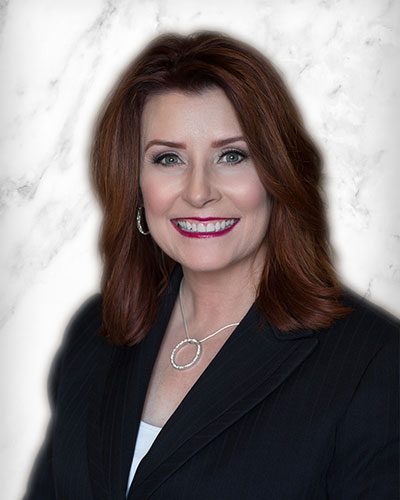Message From the Chair
-Lisa Hoppes

I am extremely excited and very honored to begin my year of service as Chair of the Family Law Section. Many outstanding Chairs came before me, most recently Anna McKim, who fiercely led us through difficult issues with integrity, kindness, and grace. Anna, thank you for your extraordinary leadership. The Section’s mission is “to promote the highest degree of professionalism, education, fellowship, and excellence in the practice of family law.” Since 1960, we have attempted to do this by publishing practical materials to assist you in your daily practice of law, promoting pro bono representation for indigent Texas families, developing preeminent CLE, and encouraging attorneys to build camaraderie at socials during our seminars.
All of this is accomplished through the hard work and commitment of many people who volunteer their time and talent to the Section. I want to take this opportunity to highlight some of the work your Section has been doing.
Publications
Chris Nickleson, Vice-Chair Kimberly Naylor, and their committee members continue to ensure that the Family Law Section produces some of the best and most helpful publications to help you in your practice of law. Publications include the Predicates Manual, Family Law at Your Fingertips, the Family Lawyer’s Essential Toolkit and Fast Guide to Family Law – Checklist For Everyday Practice. These, and many more publications, can be purchased now on our website https://sbotfam.org/shop/ or in person at Advanced Family Law in August.
Leadership Class
Last year we introduced our inaugural two-year Leadership Class. The first year, each class member was paired with a mentor, participated in educational meetings about Council and the Section, interacted with some of the most respected family law attorneys in Texas, and each member committed to completing four pro bono cases. This year, class members will implement and execute a class project under the leadership of committee Chair Kevin Segler. Stay tuned for exciting updates!
Membership
Committee Chair Kelly Fritsch and her committee are working hard to increase the Section’s social media presence while continuing community outreach to raise awareness about the valuable work done by family law attorneys, to encourage law students to pursue the practice of family law through “meet and greets” at Texas Law Schools, and to increase Section membership. Join our Facebook group “Family Law Section, State Bar of Texas” for announcements and information and to keep up with family law happenings across the State.
Pro Bono
Each year, the pro bono committee sponsors live CLE seminars throughout Texas designed to pro-vide valuable CLE to our members and ensure that indigent Texas families receive the representation they need. The seminar is free to attendees who commit to taking two pro-bono cases in a 12-month period. Under the leadership of committee Chair Lauren Melhart, this spring’s seminars are being held in Lubbock, McAllen, Tyler, Midland, Richmond and Laredo. The course directors and speakers volunteer their time and travel on their own dime without reimbursement. Thank you to the committee and the volunteers for your hard work!
Speaking of CLE, the SBOT Annual Meeting is June 18–19 at the JW Marriott in San Antonio. The Family Law Section is providing CLE on June 19 at 1:30 p.m. led by Course Director Emily Ross.
Advanced Family Law is August 3–7 in San Antonio at the Marriott Rivercenter. Course Directors Lauren Melhart and Patrick Wright have an incredible lineup of speakers and some exciting new topics. Family Law 101 Course Director Kelly Fritsch has crafted a program that includes both “refresher” and unique topics, so be sure to attend on August 3.
“I was walking in Memphis. Walking with my feet 10 feet off of Beale.” New Frontiers in Marital Property Law is back this year at The Peabody in Memphis, TN, on October 16-17. Course Director Kimberly Naylor has lined up an excellent roster of speakers and cutting-edge property topics you will not want to miss.
Course Director Tammy Moon is busy planning the Advanced Family Law Drafting course being held December 11–12 at the JW Marriott San Antonio Hill Country resort. Join us for what is sure to be an informative program, and if history repeats itself, enjoy a huge array of beautiful holiday decorations to get you in the spirit of the season.
In closing, I want to thank the Executive Committee, Council Members, Committee Chairs and members, volunteers, and our Executive Director, Christi Lankford, for all your hard work and dedication to the Family Law Section. I look forward to working with all of you to continue “to promote the highest degree of professionalism, education, fellowship, and excellence in the practice of family law.” Our future is bright!
Lisa Hoppes
Chair, Family Law Section


